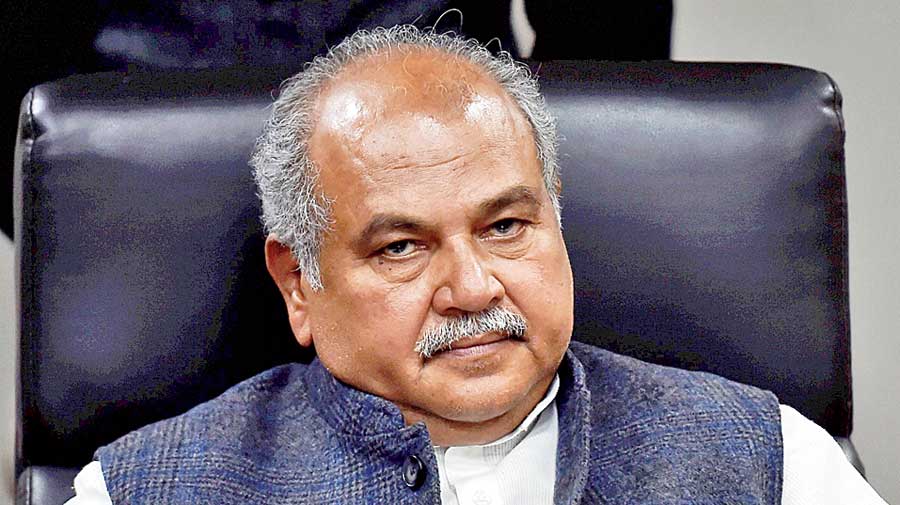It is in the nature of the ruling Bharatiya Janata Party to blame others for its own bunglings. Typically, the Union agriculture minister, Narendra Singh Tomar, has passed the buck on to an “external force” that has apparently prevented the resolution of the ongoing agitation by farmers against three contentious legislations. Mr Tomar’s search for a scapegoat is understandable: the farmers are on record saying that the yawning trust deficit between Narendra Modi’s government and the agitators is the principal reason behind the continuity of the protests. It is this inability to believe in an elected government that has prevented the farmer unions from even accepting the Centre’s offer of keeping the laws in abeyance for a certain amount of time. This assurance — the “best offer” the government could come up with — has also led to speculation whether a constitutional provision exists that empowers a government to keep its own laws in abeyance. The real issue, however, is the trust gap, and the Centre has itself to blame for it. Neither Mr Modi nor his government felt the need to adopt a consultative mechanism to pass these legislations in the name of reform. The ordinance route was preferred and, then, the laws were rushed through in Parliament by a voice vote ignoring legitimate demands to send them to a Select Committee. This show of force and the dismissal of reservations eroded the trust for the powers that be. The vilification of protesting farmers by a sustained campaign aided and abetted by the government and its favourite ally — large segments of a passive media — has vitiated the atmosphere further. Meaningful negotiation has been a casualty in the process.
It is a democratic government’s responsibility to attempt to win back the trust it has lost. Superficial gestures — visits to gurudwaras by the prime minister — are unlikely to fetch dividends in this respect, especially since Mr Modi has, so far, shown no urgency to be involved in the lengthy negotiations with the aggrieved constituency. Another, equally relevant, aspect of the crisis has commanded minimal attention. This concerns the hubris that accompanies a massive political mandate. There is no doubting the fact that India returned Mr Modi to power willingly. The robustness of that mandate seems to have made him impervious to the fact that a democratic government remains accountable to each segment of the population, big or small. The indifference to the anxieties and sufferings — more than 140 farmers have died in the course of these protests — can prove to be costly in the long run.










